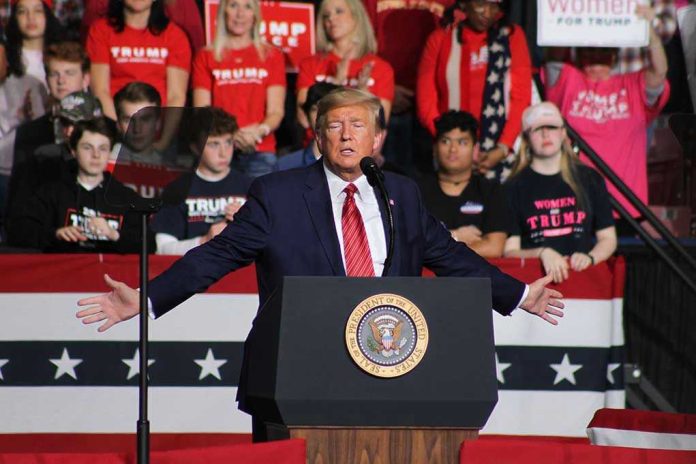
Could ten Republican legislators be paving the way for amnesty, wrapping it in the guise of “dignity” for illegal migrants?
At a Glance
- The Dignity Act of 2025 offers legal status to undocumented immigrants, not citizenship.
- At least 10 Republican lawmakers support the bill, indicating a split within the party.
- The Trump administration opposes this legalization effort, maintaining a focus on enforcement.
- Business groups support the bill, citing labor shortages in key industries.
The Dignity Act of 2025: A Controversial Move
The Dignity Act of 2025, reintroduced in July, is causing quite the stir in Washington. The bill, spearheaded by Rep. Maria Elvira Salazar (R-Fla.) and Rep. Veronica Escobar (D-Texas), is being marketed as a compromise solution to the long-standing issue of undocumented immigrants in the United States. The bill aims to provide legal status to those who have been in the country since before 2021, while also investing heavily in border security and workforce training. Supporters claim it’s a necessary step to address labor shortages and stabilize the workforce, particularly in sectors like agriculture and construction.
https://www.youtube.com/watch?v=eTcfhEJnW6Y
However, this so-called compromise is nothing short of a veiled attempt at amnesty. The bill offers legal status without a path to citizenship, which some argue keeps millions in a state of permanent legal limbo. Critics, including the Trump administration, are rightfully wary of any measure that could be perceived as granting amnesty to those who have entered the country illegally. This bill, despite its bipartisan support, is a clear departure from the hardline immigration policies that many conservatives have advocated for, including strict enforcement and deportation of illegal migrants.
Republican Division and Business Interests
The introduction of the Dignity Act highlights a growing division within the Republican Party. At least 10 GOP lawmakers have thrown their support behind the bill, signaling a shift away from the party’s traditional hardline stance on immigration. This shift is largely driven by economic considerations, as business and industry groups exert pressure on lawmakers to address labor shortages. These groups, particularly in agriculture, construction, and service sectors, have long relied on undocumented workers and are eager for a stable, legal workforce.
While business interests are undoubtedly important, one must question whether the solution should involve compromising on principles of law and order. The bill’s supporters argue that it balances enforcement with economic needs, but this balance seems heavily skewed towards accommodating illegal behavior at the expense of upholding the rule of law.
Potential Impacts and Political Ramifications
If enacted, the Dignity Act could have significant short-term and long-term implications. In the short term, it would provide legal status and work authorization to millions, reducing fears of deportation and potentially stabilizing key industries. However, in the long term, this could reshape the U.S. labor market, influence demographic trends, and set a precedent for future immigration reform efforts. Critics argue that the bill could incentivize future unauthorized migration, as it fails to address the root causes of illegal immigration.
The political ramifications are also worth considering. Moderate Republicans who support the bill may face backlash from party hardliners who see this as a betrayal of conservative values. This division could have broader implications for the Republican Party’s unity and its stance on immigration in the future.







